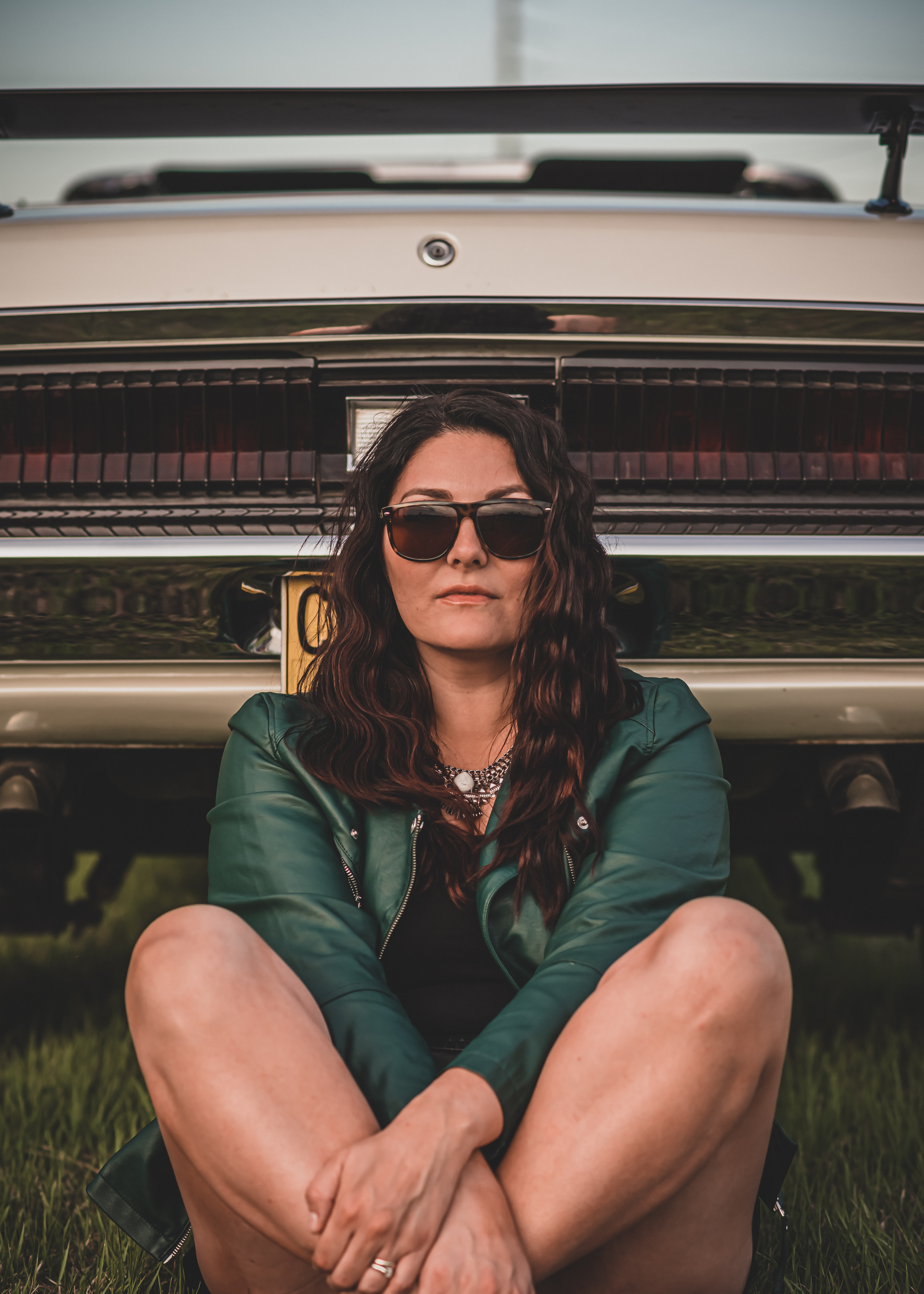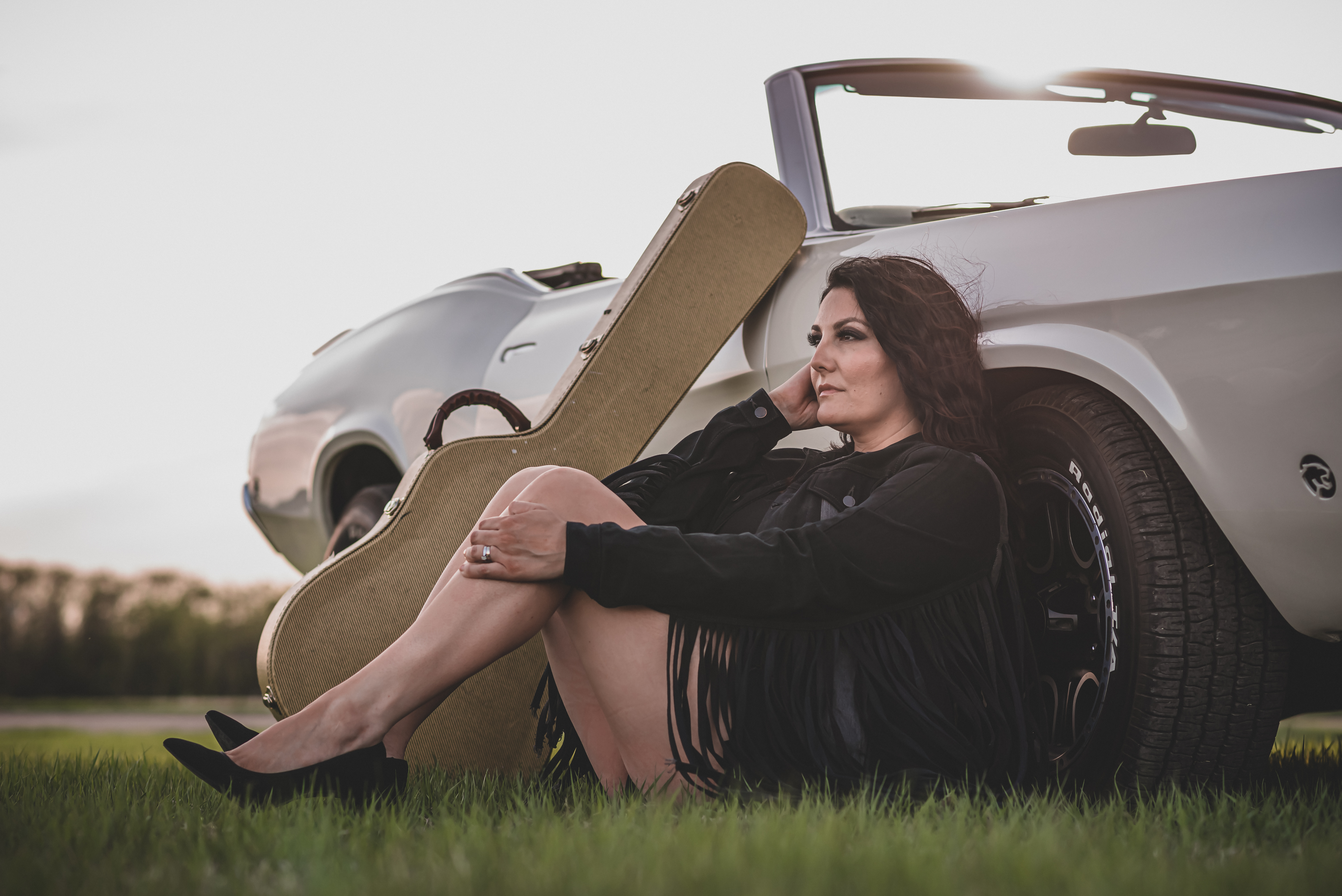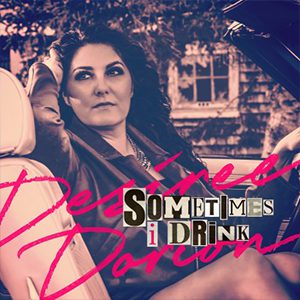Today we Spotlight – Desiree Dorion. This Juno nominated Indigenous artist has hit the charts and made a solid showing of herself so far. We sit down to chat with Desiree to talk about her music and her release of Sometimes I Drink. Check it out.
What got you first interested in music?
I don’t recall any one moment that first sparked an interest in music for me. Singing and writing I feel like is something that I have always done. I remember writing little songs as young as six years old (they were terrible songs) and always having an innate need to express myself through music.
Who were some of your main influences growing up, and who would be some artists folks would be surprised you adore?
I grew up listening to traditional country music: Kitty Wells, Waylon Jennings, George Jones, Merle Haggard, Johnny Cash, Loretta Lynn. The list goes on. I mostly paid attention to the stories that were told in all of their songs. I feel like in the last ten years or so that the stories that were traditionally told in country songs are not as prevalent (because of the introduction of pop into the genre). This has led me to start following more Americana/Canadiana music. I love Jason Isbell, Natalie Hemby, Paul Cauthen, Colter Wall, Will Prince, Ashley Monroe. The more I dig into Americana/Canadiana, the more gems I find. The search continues!
How do you think being from a smaller community in Manitoba influenced your writing? Tell us a bit about where you’re from?
I grew up in Dauphin, Manitoba and am a member of the Opaskwayak Cree Nation. I was raised in a 600-650 square foot home on the edge of the Riding Mountain National Park. We had a wood stove to heat our home in the winter. Never had internet. We spent countless hours outdoors. My upbringing has undoubtedly influenced my writing. To me, Country music is a way of life. It’s living the stories that you write.
Indigenous culture is all about story telling. What kind of story do you try to tell with your music?
I mostly try and tell honest stories. For instance, the title track off my most recent album, “Break the Chain,” is a story about wanting a better life for my daughters. My grandmother is a residential school survivor and my dad is a day school survivor. The intergenerational impacts of government/church run schools has detrimentally affected my family. I think of this song as a prayer song for my girls; that they will break the chain.
What was it like to play the Dauphin Country Fest in 2014 after sneaking onto the stage as a child?
The longer I stay in this business, the more I realize that it can make your dreams come true and break your heart, sometimes all at once. This gig was a dream come true. I literally envisioned playing that stage as young as eight years old. Those early dreams I recall the details. I remember envisioning the amount of people, what I would say, where I would walk, the noise. That gig I drove in my old pickup truck and parked it next to the giant tour buses and claimed my space. It felt magnificent.
Your new single “sometimes I drink” is such a vibe. Tell us a bit about it!
In January, 2020, I travelled to New Orleans for Folk Alliance International. Afterwards, I rented a car and drove north through the Bayou to Nashville. I spent a week there writing. One of my co-writing sessions was with Crystal Shawanda. An artist whom I’ve looked up to since my late teens. She has just done so much and blazed a trail for Indigenous artists that I really didn’t think she’d agree to write with me. She surprised me when she said yes. We wrote this song at her home in three hours. It was like sitting down with an old friend and I think that’s reflected in the song.
You were fortunate enough to be able to shoot a video for it as well. What was it like to get together and translate sound to video?
SO. MUCH. FUN! It was important to me to work with local businesses for the video. I hired a local production company. Partnered with a local brewing company: Little Brown Jug Brewing Co., and used local faces (mostly friends of mine) as the characters in the song. My stomach hurt at the end of the night from laughing so hard. Stay tuned for the blooper reel!!
Can we expect any upcoming releases this fall/winter?
Yes!!
A member of the Opaskwayak Cree Nation, how does your identity as an indigenous woman impact your life?
I mentioned previously, the impact of intergenerational trauma in my life has been huge. As an artist, I didn’t have the luxury of guitar lessons or voice lessons growing up. It is also difficult sometimes to navigate reconciliation. I feel like more is expected from Indigenous people because many of us are teaching our non-Indigenous friends about the history in this country. We carry this weight and it gets heavy sometimes.
This requires us to be better informed and to employ diplomacy even when we don’t want to. However, the older I get, the more I realize that it is important for Indigenous artists, women especially, to share more than our trauma stories. Because we are more than that. We are moms, aunties and vital members of our communities. I love to laugh, and I have a deep love for life. It’s more important than ever for positive representation of Indigenous women in the media. I want that for my daughters.
Given Canada’s ongoing subjugation of indigenous peoples, what are some words of support for indigenous youth that you would like to provide?
I don’t believe in meritocracy. Working hard will not get you everything that you want. But it will improve your chances. Set specific goals and outline the steps that you need to take to achieve those goals. Then get to work. Expect failure. Embrace it. Those moments are where you will learn the most about yourself.
You are not just a singer, but also a mother, and a lawyer. What made you decide to pursue music fulltime and let being counsel take a back seat?
Well, lawyering hasn’t really taken a back seat. I still practice law. My primary area of practice is in child protection law. I defend parents and children when they have been separated from each other. Aside from raising daughters, I feel like it is the most important work that I will do in my lifetime. It is my heart work. I feel like it is one small way that I resist colonialism on daily basis.
2020 was not exactly stellar for performances, but were there any performances that stand out for you and make you smile?
Yes!! I did an Instagram takeover for Dauphin’s Countryfest. Stephen Arundell (who plays guitar for me) and I performed at the empty amphitheatre and streamed it live. I also shot some footage of that performance and used it in my video for my song, “Life”.
What are your tour/live shows planned for fall of 2021 looking like?
First – LIVE MUSIC IS BACK!!! My August is jam packed and I can honestly say I have never been more excited to get back onstage. I have a few festival dates and a tour with the Manitoba Arts Network happening. I’ve also got some shows in the works out west that I can’t fully disclose just yet – stay tuned to my website and social media for those updates!
After doing so many of these pressers and interviews, what is one thing you wish that people knew about you that never seems to come up?
I think many people assume that because I’m an artist that I am an extrovert. Being onstage requires me to channel big energy, which I do love to do, but it often exhausts me. I love being alone. Being alone in nature especially recharges my batteries. It’s weird to feel this way when much of my artistry requires me to engage with the public.
We here at Hidden Beats love to celebrate other Canadians. What are some of your local favorite places to hype up and give a shout out to?
I love Times Change(d) High & Lonesome Club in Winnipeg!
Spotlight – Desiree Dorion has come to an end. Big thanks to Desiree for spending some time talking to us
Check out Sometimes I Drink right now
Keep up with anything new right here
Get your Spotlight right away!







